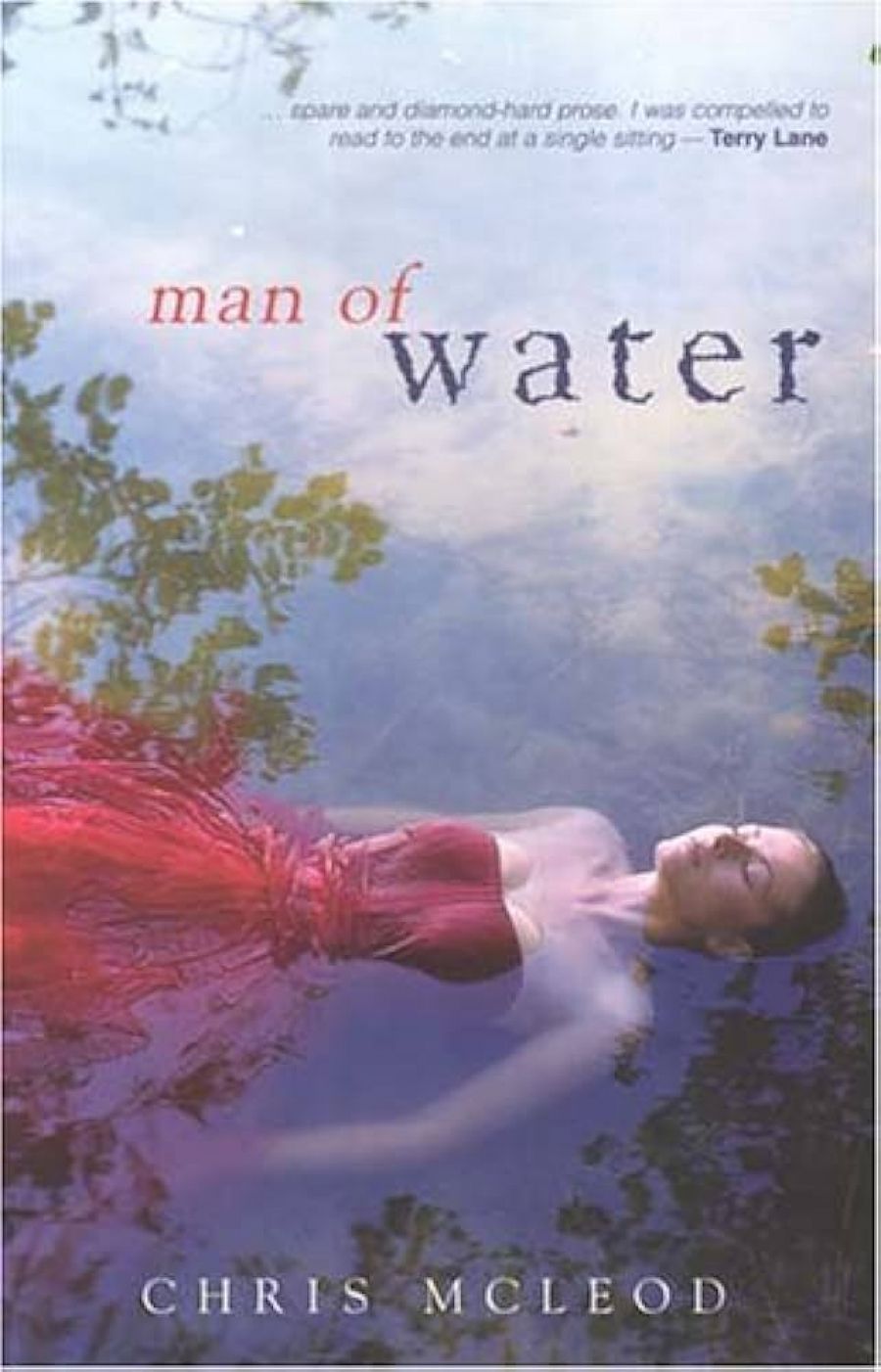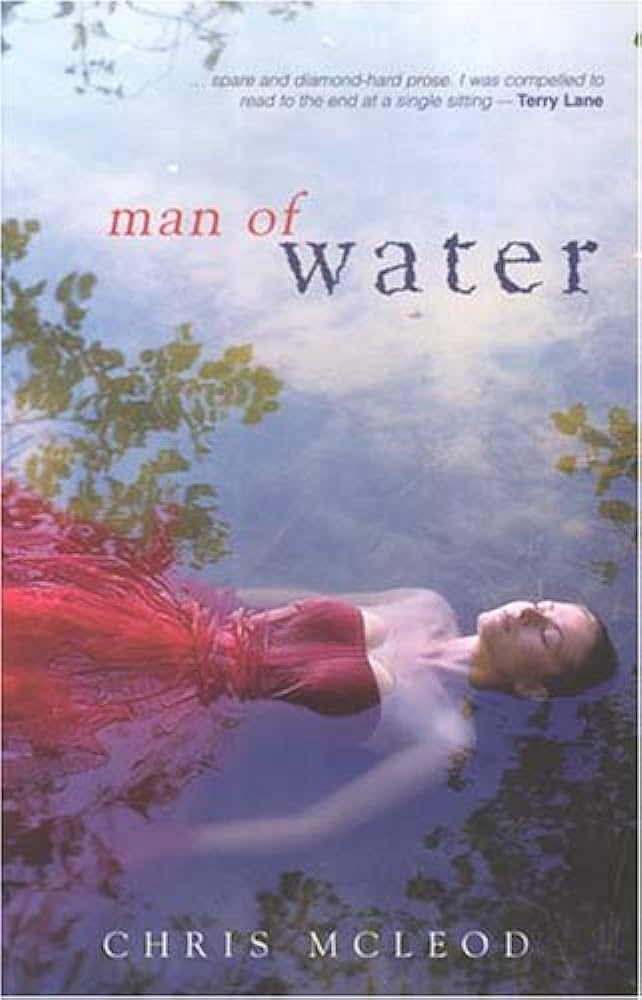
- Free Article: No
- Contents Category: Fiction
- Review Article: Yes
- Article Title: Life's stages
- Online Only: No
- Custom Highlight Text:
Do families aid creativity or do they stifle it? Does art require freedom and solitude, the luxuries of long, introspective walks on beaches and bottles of red for one, or can art arise from the chaos and banality of domestic life with a spouse and children?
- Book 1 Title: Man of Water
- Book 1 Biblio: FACP, $24.95 pb, 219 pp, 1921064005
- Book 1 Cover Small (400 x 600):

- Book 1 Cover (800 x 1200):

- Book 2 Title: Sunnyside
- Book 2 Biblio: Viking, $29.95 pb, 396 pp, 0670042978
- Book 2 Cover Small (400 x 600):

- Book 2 Cover (800 x 1200):

Things have not worked out quite as planned. Alice, the author of two successful literary novels, has not written anything worth keeping since they arrived. Her libido has also disappeared. Harry, meanwhile, is rather too fascinated with a sharp-tongued young student who displays thighs ‘so white, they looked mint-green’ under her pleated miniskirts. Both their children are struggling. Teenaged Joe loves sport and hates books (a nightmare for his academic parents), and has developed an obsession with a ship full of 57,000 live sheep baking on the ocean. His ‘tweenie’ sister Grace is an uptight perfectionist, ‘an arrogant little star’ who is difficult to love because she finds ‘being loved so unnecessary’.
Watt, the middle-aged narrator of Perth writer Chris McLeod’s novel Man of Water, is also suffering from writer’s block, but his personal circumstances could not be more different from those of Alice. Watt lives alone in rainy Osprey Bay. He arrived there six months earlier, with the intention of working on his novel and a PhD on ‘creativity and the writing process’, a project that will draw on the work of Freud, particularly the observation that ‘the author is a slave to unconscious forces; characters may be understood as the author’s doubles, projections of fantasies and ideals’. If there was ever a dissertation topic guaranteed to dry up any remaining puddles of creativity, it must be this one. Unsurprisingly, Watt has done no writing whatsoever. He hasn’t even managed to mow the lawns or paint the gutters, which he had promised to do in return for the free accommodation.
Watt has no family, few friends. He abandoned his wife and five-year-old son two decades earlier and has had no contact with them since. He never knew his father, and his mother is dead. He is having an affair with Claudia, a novice novelist, but he has more disdain than love for this woman. He doesn’t enjoy sex, and certainly makes no effort to please his lover. Sadly, he is more likely to be aroused by an absent Claudia, her scent on his pillow, than by the actual woman. His present is empty, his past vivid and painful, a landscape pocked with Watt’s devastating self-absorption and his fear of entrapping women. Domesticity has never claimed Watt, and yet he is stunted, bitter and cowardly, filled with a cruel anger towards his wife, his mother, Claudia and many other women who, he believes, have tried, unsuccessfully, to shape and control him.
Alice, in contrast, is anchored to family and home, a ‘domestic goddess’ (without Nigella’s rather too plentiful curves) who makes lemon butter for school fêtes. When her children arrived, she gave up her job in publishing and devoted herself to mothering. She and Harry have a close circle of friends in Sunnyside. Like them, they are all parents. They are good-looking and wealthy, knowingly bourgeois.
Once a month, the four couples have dinner together. It is at one of these get-togethers that Molly (a part-time publicist for a vineyard) reveals she is having an affair with the young surfie stud who cleans her pool. Her fifteen-year-old son Justin, having discovered his mother’s infidelity, expressed his anger by driving Molly’s nice new Golf into a dam.
Molly’s affair – introduced in a camp scene at the start – is the opening catastrophe that unsettles the smooth, safe world of Sunnyside. Her wild disregard for her husband and son, her greedy and destructive pursuit of sexual pleasure with a man who ‘tasted young’, threatens Alice and Harry and the rest of the gang.
Murray-Smith’s plays Honour and Bombshells were animated, for me, by insight into the inner world of a certain kind of white middle-class woman. This same skill is displayed here in the depiction of Alice, especially in her reflections on the demands and joys of motherhood. She reflects: ‘The relentless itinerary of the female body, its sexual appetites, its maternal stirrings, its birthings and tendings, these took up the space of choice that men had available. Most women did not have the luxury of asking, “Who might I be?”, not after a certain age, and maybe never.’
Harry, the husband, is another great character, with his secret longing for a Bang & Olufsen CD player, his hilarious gyrations on the dance floor at a twenty-first, his pondering of whether there might be some pleasure in being ‘married to another heterosexual male’. I was less sure about the children, who are also accorded a significant role. The Haskins’ daughter Grace and their next-door neighbour Scarlett (who idolises Alice and Harry) seemed to understand too much. Their voices were occasionally too similar to that of Alice. Even so, a few precocious kids are unable to diminish the pleasures of this novel, an intelligent, antipodean, literary kind of Desperate Housewives.
If Alice has too little time to ponder who she might be, McLeod’s Watt has rather too much. Man of Water opens with a horrible, dream-like scene in which Watt watches an old man drown in a weir and does nothing to help. There is the affair with Claudia and the odd encounter with academia, but most of the book comprises Watt’s reflections on his unpleasant past.
Drowning is a recurrent theme. Aside from the man in the weir, women and children are the victims. In one chilling section, Watt recalls a woman he encountered when he was a social worker. He had failed to recognise the severity of this woman’s distress, and a few days after his visit, the woman had drowned her daughter in the bath. ‘Some social worker. Some writer. Some human being,’ Watt writes of his part in this episode.
Man of Water is a difficult book to read. Despite his righteousness, Watt appears to despise himself. He is, in almost every respect, a hateful man. Yet there is something pathetic about him, too, and Watt’s nascent awareness of his extreme neediness, of the way he has savagely cut himself off from any relationship that may have brought happiness, is interesting. At the very least, Watt’s angry, empty, solitary life is a powerful endorsement for the flawed attractions of the garden sprinkler and the golden retriever.


Comments powered by CComment